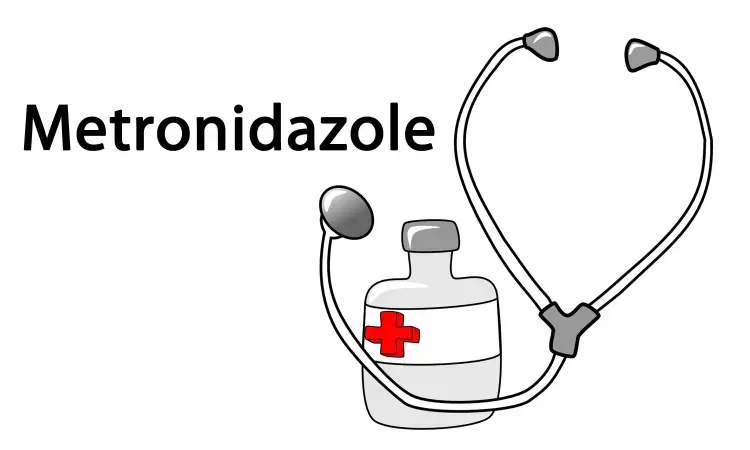- Home
- Medical news & Guidelines
- Anesthesiology
- Cardiology and CTVS
- Critical Care
- Dentistry
- Dermatology
- Diabetes and Endocrinology
- ENT
- Gastroenterology
- Medicine
- Nephrology
- Neurology
- Obstretics-Gynaecology
- Oncology
- Ophthalmology
- Orthopaedics
- Pediatrics-Neonatology
- Psychiatry
- Pulmonology
- Radiology
- Surgery
- Urology
- Laboratory Medicine
- Diet
- Nursing
- Paramedical
- Physiotherapy
- Health news
- Fact Check
- Bone Health Fact Check
- Brain Health Fact Check
- Cancer Related Fact Check
- Child Care Fact Check
- Dental and oral health fact check
- Diabetes and metabolic health fact check
- Diet and Nutrition Fact Check
- Eye and ENT Care Fact Check
- Fitness fact check
- Gut health fact check
- Heart health fact check
- Kidney health fact check
- Medical education fact check
- Men's health fact check
- Respiratory fact check
- Skin and hair care fact check
- Vaccine and Immunization fact check
- Women's health fact check
- AYUSH
- State News
- Andaman and Nicobar Islands
- Andhra Pradesh
- Arunachal Pradesh
- Assam
- Bihar
- Chandigarh
- Chattisgarh
- Dadra and Nagar Haveli
- Daman and Diu
- Delhi
- Goa
- Gujarat
- Haryana
- Himachal Pradesh
- Jammu & Kashmir
- Jharkhand
- Karnataka
- Kerala
- Ladakh
- Lakshadweep
- Madhya Pradesh
- Maharashtra
- Manipur
- Meghalaya
- Mizoram
- Nagaland
- Odisha
- Puducherry
- Punjab
- Rajasthan
- Sikkim
- Tamil Nadu
- Telangana
- Tripura
- Uttar Pradesh
- Uttrakhand
- West Bengal
- Medical Education
- Industry
Metronidazole linked to peripheral and central nervous system toxicity

Metronidazole increased risk of adverse peripheral and central nervous system events compared to clindamycin, finds a new study.The case study has been published in the journal of Clinical Infectious Diseases.
There have been case reports describing instances of peripheral and central nervous system toxicity during treatment with metronidazole, however, no large-scale studies have examined this association.
The researchers conducted a population-based nested case control study of adults aged 66 years or older living in Ontario, Canada between April 1, 2003 to March 31, 2017. Eligible participants included those who visited hospital for any of cerebellar dysfunction, encephalopathy, or peripheral neuropathy within 100 days of a prescription for either metronidazole or clindamycin were included. They matched each case patient with up to 10 event-free control subjects who also received metronidazole or clindamycin.The conditional logistic regression to test the association between metronidazole exposure and neurologic events, with clindamycin as the reference exposure was carried out .
All the patients were matched with up to 10 event-free controls who also took metronidazole or clindamycin. Overall 1,212 patient cases and 12,098 controls were identified. The overall incidence of neurologic events at 100 days was identified to be about 0.25% in metronidazole recipients. Findings revealed an increased risk of adverse peripheral and central nervous system events in relation to metronidazole vs clindamycin. The researchers found a consistent association limited to either central (aOR: 1.46; 95% CI: 1.27 to 1.68) or peripheral (aOR: 1.34; 95% CI: 1.02 to 1.76) nervous system events. Among metronidazole recipients, the overall incidence of neurologic events at 100 days was approximately 0.25%.
The researchers concluded that metronidazole is associated with an increased risk of adverse peripheral and central nervous system events relative to clindamycin. According to the authors, both clinicians and patients should be aware of these rare but potentially serious adverse events.
For further reference log on to:
Clinical Infectious Diseases, ciaa395, https://doi.org/10.1093/cid/ciaa395
Dr Kamal Kant Kohli-MBBS, DTCD- a chest specialist with more than 30 years of practice and a flair for writing clinical articles, Dr Kamal Kant Kohli joined Medical Dialogues as a Chief Editor of Medical News. Besides writing articles, as an editor, he proofreads and verifies all the medical content published on Medical Dialogues including those coming from journals, studies,medical conferences,guidelines etc. Email: drkohli@medicaldialogues.in. Contact no. 011-43720751


